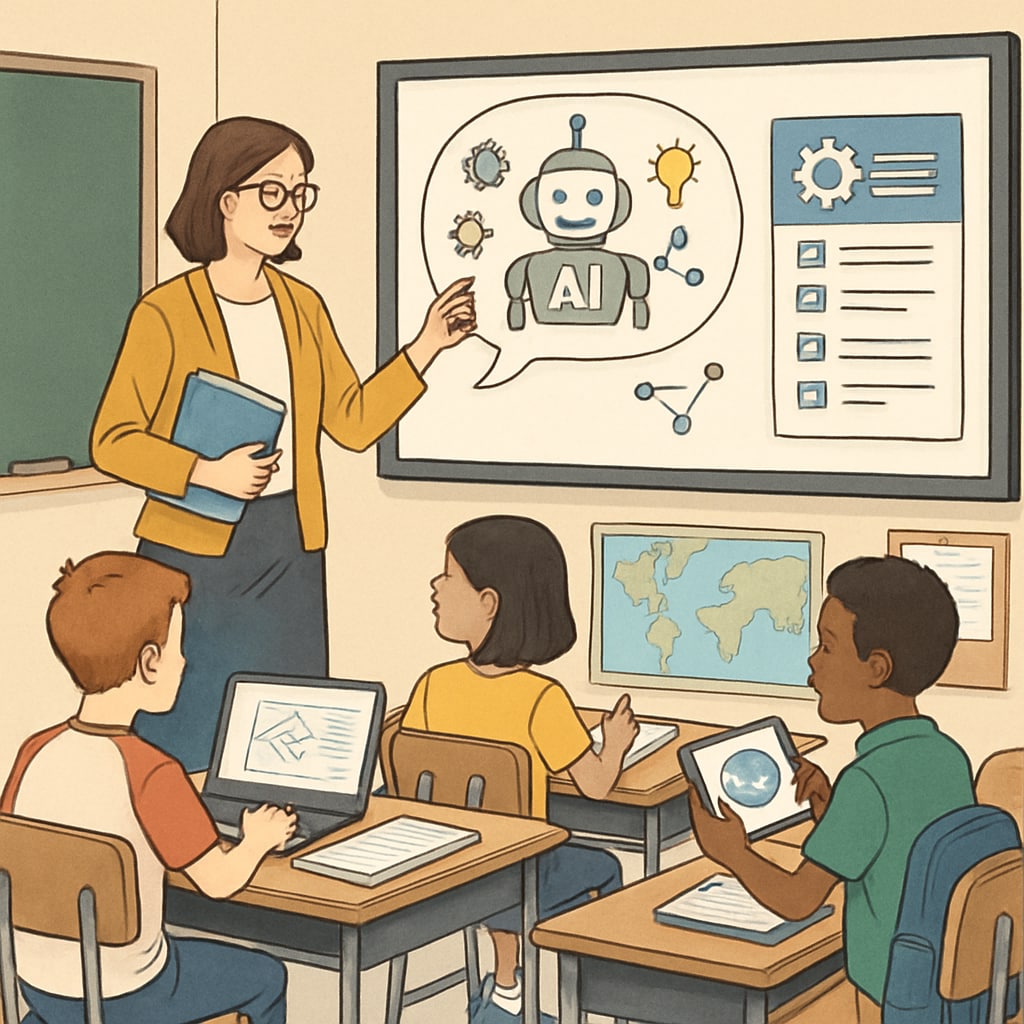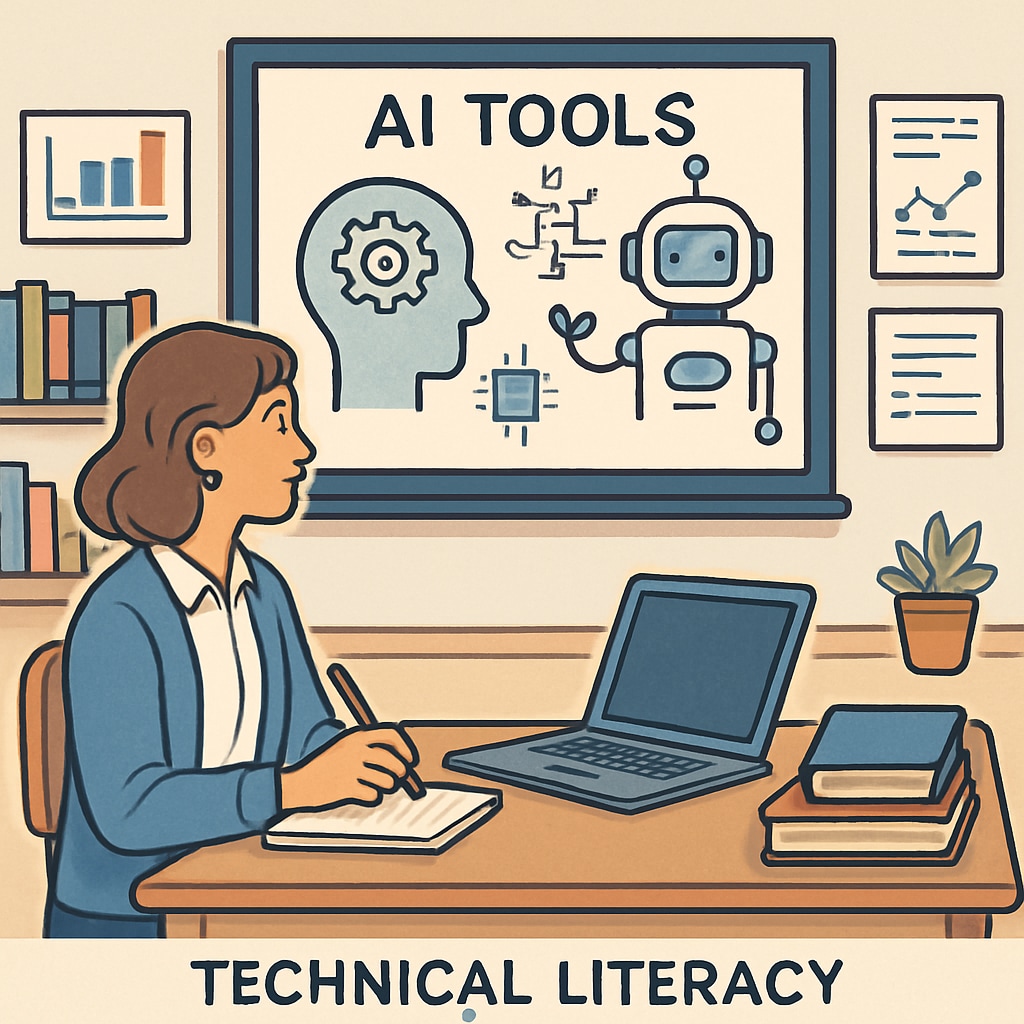Artificial intelligence (AI) is revolutionizing K12 education, introducing tools that significantly boost efficiency and streamline classroom activities. However, this digital transformation also raises critical questions about the future of teacher value and salaries. As AI systems grow more capable of personalizing learning experiences and automating administrative tasks, educators face the challenge of redefining their roles in a technology-driven landscape. At the same time, education systems must adapt to ensure that teachers remain integral to student success.

Is AI Empowering Teachers or Replacing Them?
AI technologies, such as adaptive learning platforms and virtual tutors, have the potential to empower teachers by automating repetitive tasks, analyzing student performance data, and offering tailored learning experiences. For instance, tools like Khan Academy and other AI-driven platforms can provide real-time feedback to students, allowing teachers to focus on more complex educational challenges such as fostering critical thinking and creativity.
However, the same technologies also raise concerns about the automation of teaching responsibilities. If AI systems can perform functions traditionally handled by educators, such as grading and lesson planning, will this lead to a diminished perception of the teacher’s role? Furthermore, as schools increasingly adopt AI tools to cut costs, could this result in salary stagnation or even reductions for teaching staff?
While AI can enhance efficiency, it is crucial for educators to position themselves as irreplaceable contributors to student development. This requires investing in technical skills and leveraging AI as a collaborative partner rather than a competitor.
Redefining Teacher Skills in the AI Era
To remain relevant in an AI-driven educational system, teachers must develop new competencies. Technical literacy, including the ability to operate and integrate AI tools, is becoming essential. For example, learning to use AI-based analytics platforms can enable teachers to identify trends in student performance and adjust their teaching strategies accordingly.
In addition to technical skills, soft skills such as emotional intelligence, adaptability, and communication will grow in importance. While AI can process data and automate tasks, it cannot replace the human connection that teachers provide. Educators who excel in mentoring, motivating, and understanding students’ emotional needs will continue to play a vital role in shaping future generations.
Moreover, professional development programs must evolve to include training specifically designed for the AI era. Schools and policymakers need to invest in workshops, certifications, and ongoing learning opportunities to ensure teachers are equipped to thrive alongside AI technologies.

Balancing AI Adoption with Teacher Salaries
One of the most significant concerns surrounding AI in education is its impact on teacher salaries. While technology adoption can lead to cost savings for schools, these savings should not come at the expense of educators. Policymakers and school administrators must carefully consider how to balance budget constraints with fair compensation for teachers.
For example, the integration of AI should be viewed as an opportunity to reallocate resources more effectively. Rather than reducing salaries, schools can use AI to improve educational outcomes and justify investing in teacher training and professional growth. Additionally, the role of unions and advocacy groups will become increasingly vital in ensuring that the financial interests of teachers are protected during this technological shift.
Therefore, a collaborative approach involving educators, administrators, and policymakers is essential to ensure that AI enhances the teaching profession rather than undermining it.
Conclusion: Navigating the AI-Driven Future
As artificial intelligence continues to reshape K12 education, teachers must adapt to maintain their value in the evolving classroom environment. By embracing technical skills, emphasizing soft skills, and advocating for fair compensation, educators can ensure they remain indispensable to student success.
At the same time, education systems must adopt policies that prioritize teacher development and fair salaries, recognizing their critical role in fostering well-rounded learners. AI should be a tool for empowerment, not a threat to the teaching profession.
Readability guidance: This article uses concise paragraphs and clear headers to enhance readability. Lists and examples provide practical insights, while transitional phrases maintain logical flow. The focus remains on actionable strategies for teachers and institutions to adapt effectively to AI-driven changes.


